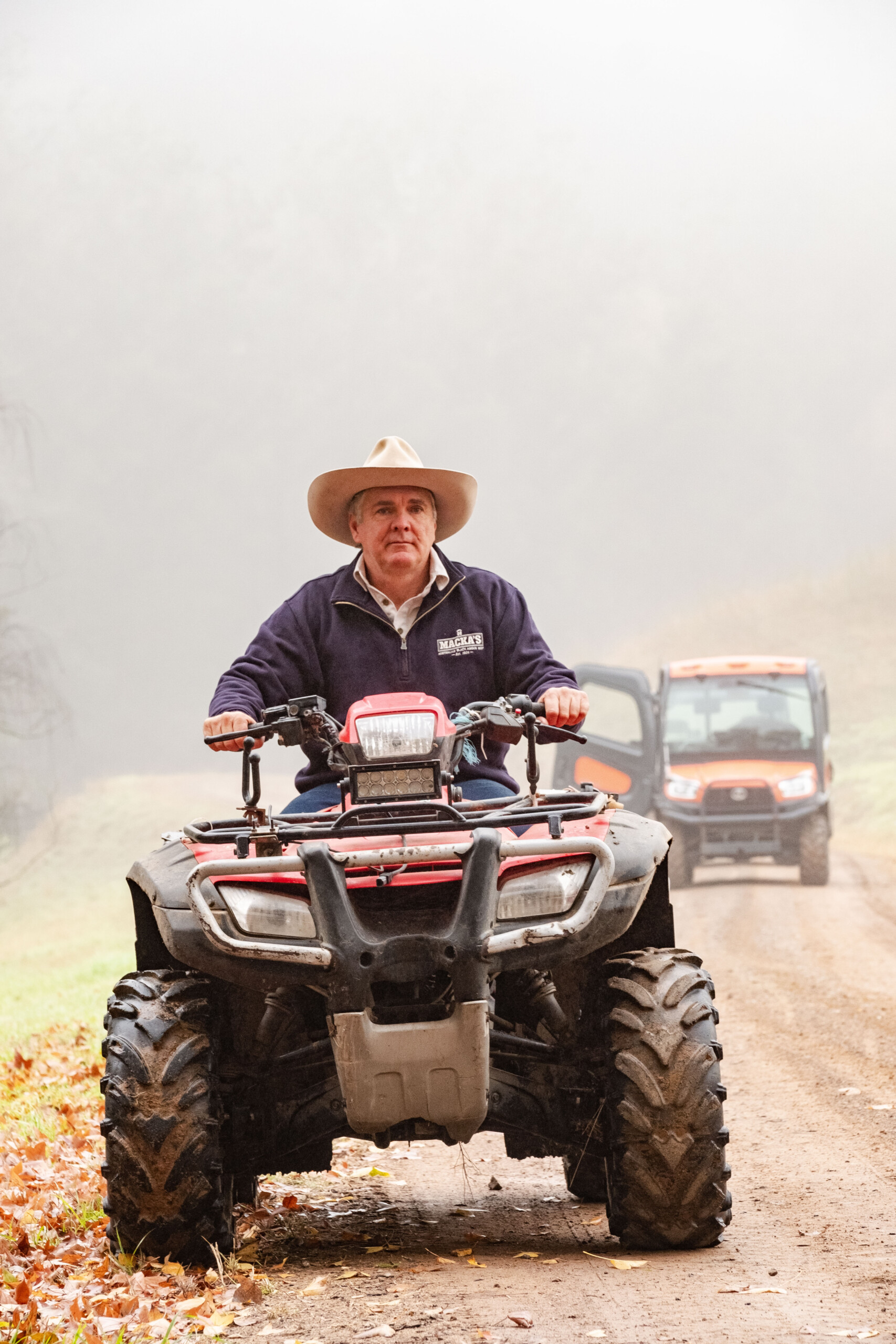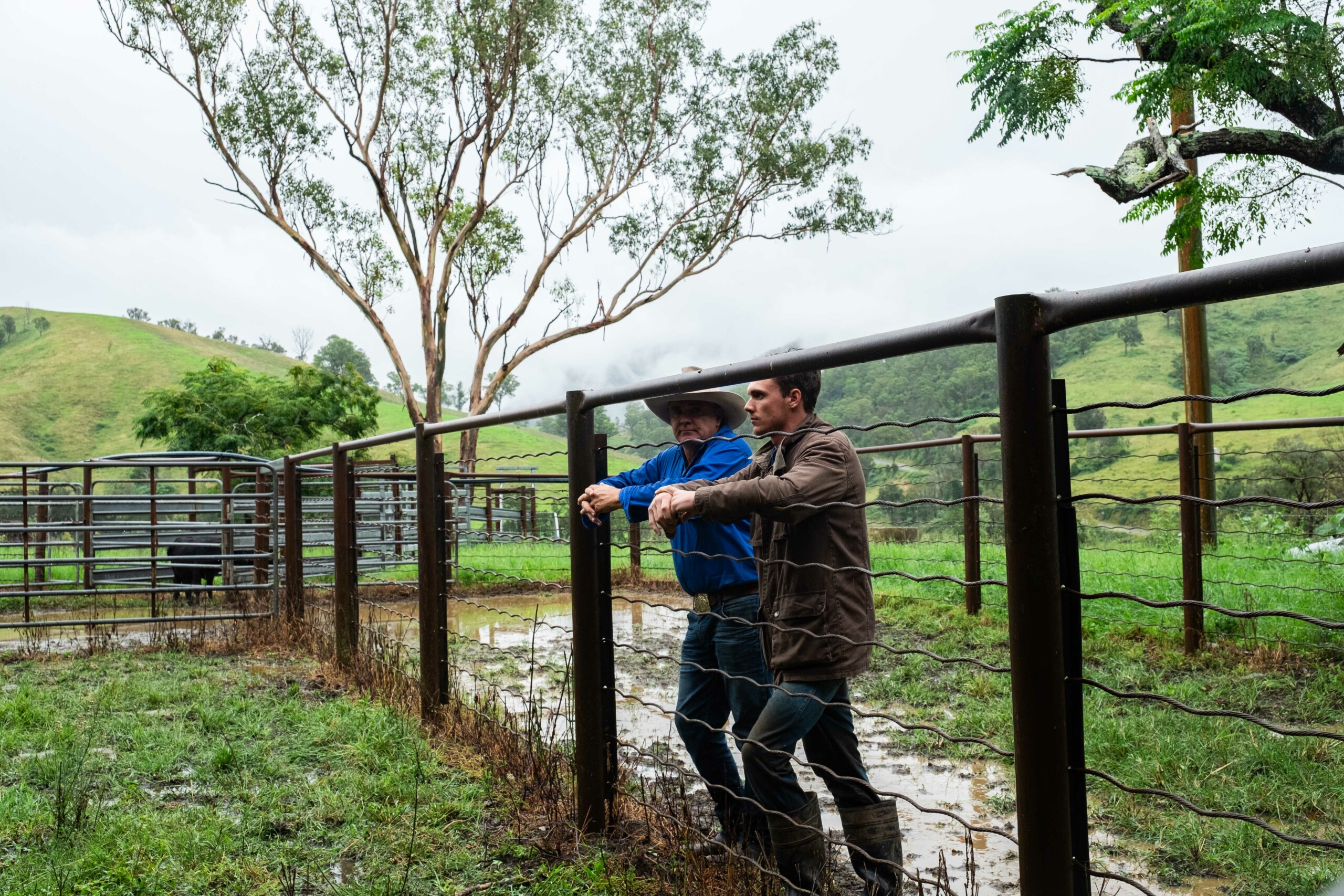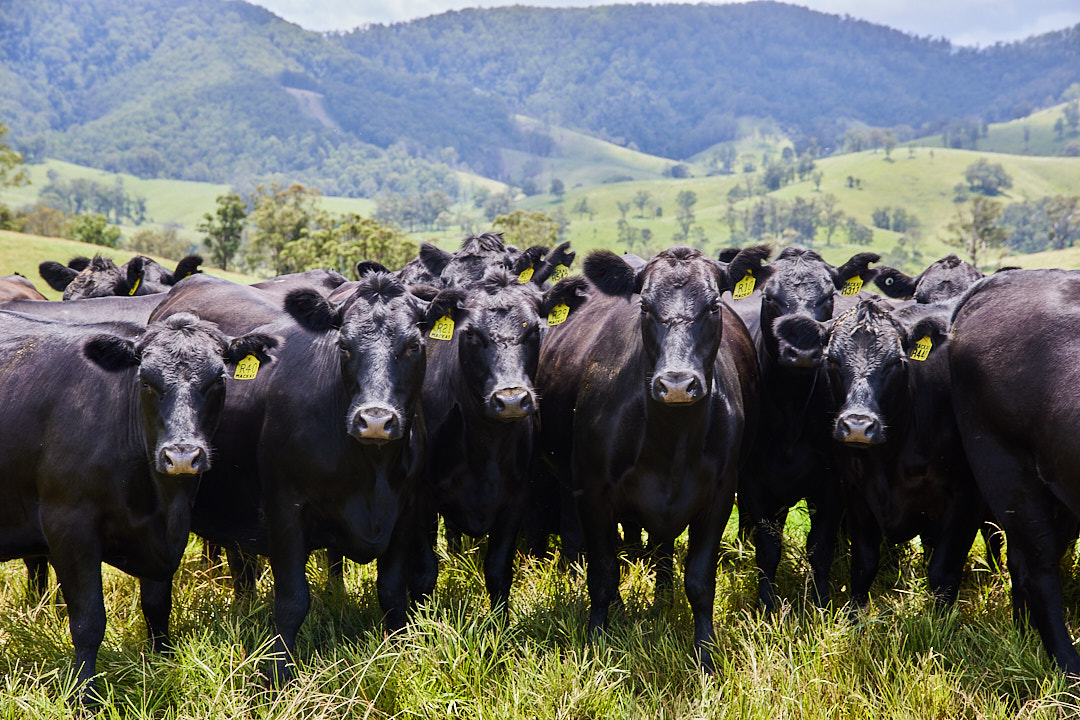The story telling power of agritech: how data is helping Macka’s Australian Black Angus Beef tell a story that’s worth hearing
Agritech tends to be defined as innovations that help farmers become more efficient, more profitable, and more sustainable. Beef producer, Robert Mackenzie, wants us to consider how it can help farmers become better storytellers. Here, we learn why the Managing Director of paddock-to-plate business, Macka’s Australian Black Angus Beef, is using agritech to capture, record and share the sustainability story with customers.

‘Blustery’ is how a meteorologist might describe conditions affecting Australian agriculture. Two years of record average farm cash incomes have created the strongest tailwinds seen in decades. At the same time, input costs, ongoing supply chain interruptions, and changing consumer and regulatory demands have formed headwinds just as strong.
Farmers are feeling the turbulence. But can on-farm technology offer solutions? Robert Mackenzie thinks so – but not for the reasons you might think.
A fourth-generation beef producer and Managing Director of Macka’s Australian Black Angus Beef, Robert oversees the family’s eight farms, covering 6,400 hectares of the NSW mid-north coast.

Robert Mackenzie on his quad bike. Image supplied by Macka’s Australian Black Angus Beef.
Running 3,500 commercial cows and a 500-head stud, the family business embraces on-farm technology. But not only because it helps with the logistics of managing an enterprise of this scale.
“Data is really important to our business,” explained Robert. “We’re building a paddock-to-plate business where we supply a quality branded beef product to customers in Australia and internationally.”
“From our earliest conversations with potential customers, we knew they were hungry for information. They wanted to understand where their food came from. That it was safe. That the animals lived a good life.”
“As far back as 2015, we were thinking about the data we needed to tell our story and started adopting the innovations that could help us collect it.”
RELATED: How digital solutions can yield new growth
Sons normalise agritech approach to storytelling
Like most Australian farmers, Robert has a huge appetite for innovation. But he’ll freely admit that having his sons back on the farm has proved a huge advantage when it comes to adopting tech.

Robert Mackenzie, MD of Macka’s Australian Black Angus Beef with one of his sons. Image supplied by Macka’s Australian Black Angus Beef
“James has a double degree in agriculture and business, and Jack is a qualified diesel mechanic and helicopter pilot. So, my sons bring a wealth of knowledge and experience to the operation,” he said.
“They’re also from the generation that was basically born with a mobile phone in their hand. Using apps to capture and share information is just a normal everyday thing for them. It made sense that we look at apps to tell the farm story, too.”
Being clear on the outcome helps clarify which solutions to adopt
With the marketplace for agritech solutions growing every daily, deciding which technology to invest in can be a key challenge for farmers. To answer it, the Mackenzie’s go back to their original storytelling ethos: ‘what do we want to say, and what do we need to prove it?’
Optiweigh is helping tell their sustainability and welfare-friendly story. Robert explained how the innovative front-foot in-paddock weighing system helps them make smarter decisions that benefit the animals and the land.
“It gives us real time data on how our steers and heifers are performing, so that we know when to sell or when to join,” he said.
“Bringing cattle in to weigh each individual creates stress, takes condition off them and uses lots of manpower. The Optiweigh system does it automatically; we just go onto the app and view the results.”
Ceres Tag are another off-the-shelf innovation which Robert has embraced, to improve the reproductive efficiency and therefore sustainability of his breeding operation.
“We’ve invested heavily in genetics to support our stud, and when you’re paying anywhere up to $200,000 for a bull, you need to make sure they’re productive,” he said.
“Ceres tags help us to track our bulls’ movements on a day-to-day basis, to monitor how well they’re servicing the cows, and allows for early treatment if he has an animal health issue.”
RELATED: Simplicity and scalability the key to Ceres Tag’s global approach
Bespoke tech solution which any producer can access
But Robert’s app library also includes a range of bespoke solutions – developed by the family in partnership with Aglive – which are helping the Mackenzie clan capture their story.
Like a vehicle maintenance platform conceived by Jack Mackenzie that helps to mitigate vehicle safety hazards for operators right across the business’ plant and equipment.
Another program allows the family to map their farms’ productive capacity, saving on costs and carbon emissions.
“We’ve categorised every paddock across all our farms as either low, medium, or high productive capacity – or as a conservation zone – allowing us to determine where to invest in inputs,” explained Robert.
“We connect that data into our aircraft or spreader trucks, which then apply precisely the right amount of fertiliser, compost, lime, or whatever it is that zone needs to maximise productivity – and nothing more.”
Robert added that the platform also allows them to record management actions for every paddock.
“I can open a property map, click on a paddock, and leave a note saying that I moved cattle in on the 11th of April and out on the 15th; I mulched on the 16th; and fertilised on the 18th,” he said.
“It gives us a record of how we’re prioritising sustainable, animal welfare-friendly production, and we have it for every paddock on every farm.”
RELATED: Why on-farm sustainability measurement is worth the effort
More efficient, more profitable – and more compelling to customers
Robert concluded that the family’s adoption of agritech has made the business more efficient and more profitable.

Image supplied by Macka’s Australian Black Angus Beef
“But its real value comes from helping us to tell and validate our story and credentials with customers and regulators,”
“We’ve got a really positive story to tell about our land, our animals and our beef. Whether it’s paddock-to-plate traceability using our blockchain-based logistics platform, or the QR codes we add to sale catalogues and pen numbers to make it easy for buyers to see the breed and health characteristics of our animals, technology is helping us to share our story with the world.”
Robert wants to see a future where his grandkids are excited to become the sixth generation of Mackenzie beef producers, but he knows that that future relies on the industry telling its positive story.
“Whether you’ve got 300 cows or 3,000, every producer has a story to tell, and there’s tech solutions out there to help you do it,” he said.
Enjoyed this story? Want to learn more about the Asia Pacific region’s innovative agrifood tech ecosystem and to surround yourself with like-minded and positive growers like Macka? Save the date for evokeAG. on 20-21 February 2024 in Perth, Western Australia. Tickets are on sale and following a sell-out event in 2023 we are encouraging delegates to secure their tickets, flights and accommodation early.
We look forward to seeing you in Perth for evokeAG. 2024, in the meantime, catch up on the other conversations about sustainability, climate resilience and the role of agritech in meeting those challenges from evokeAG. 2023 here.
